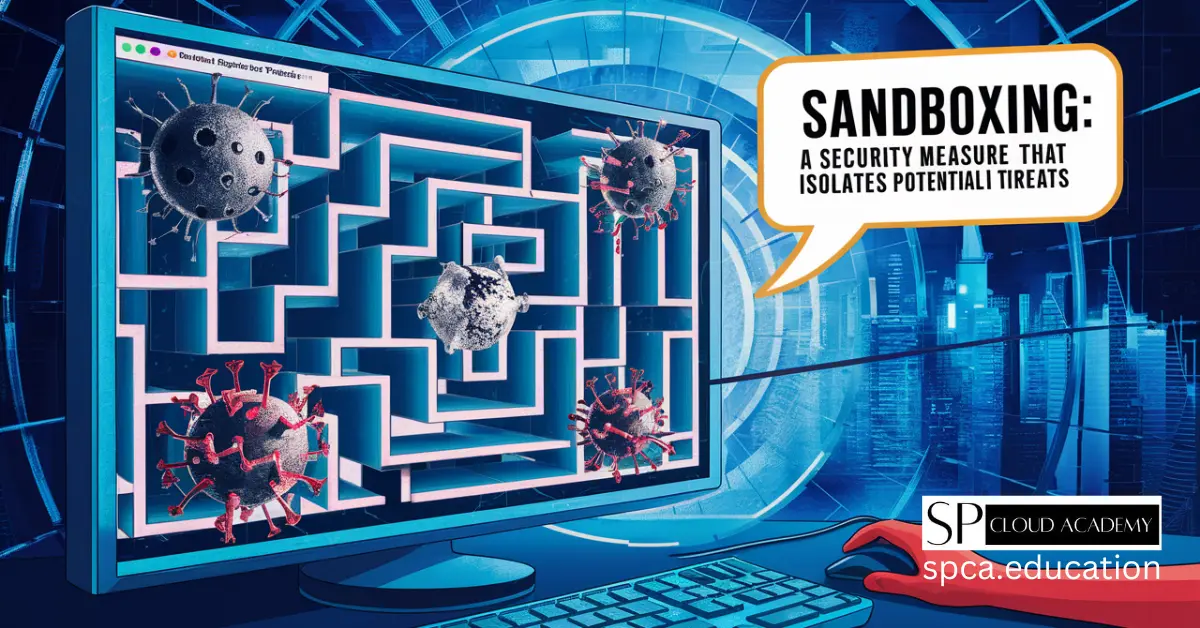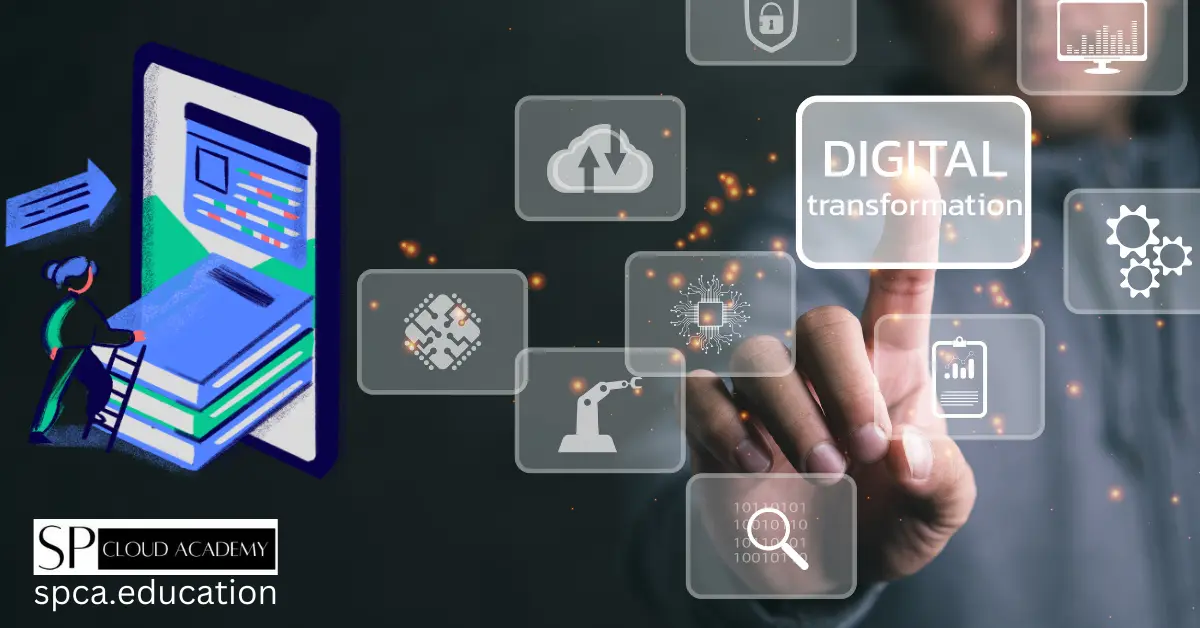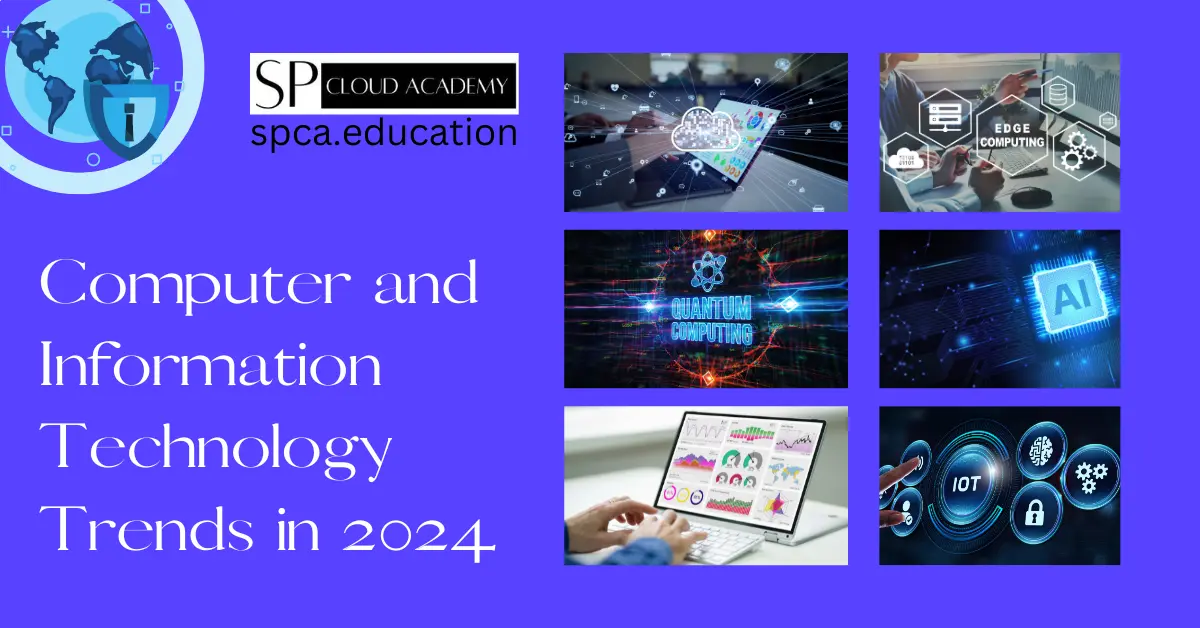Welcome to the future of computers and information technology! In this article, we will explore the exciting trends that are set to shape the industry by 2024. From artificial intelligence and blockchain technology to quantum computing and edge computing, the possibilities seem endless.
Overview of Current Technology Trends
The world of technology is constantly evolving, and it’s important to stay up-to-date with the latest trends. Currently, there are several key areas that are driving innovation and shaping the future of computers and information technology.
Artificial intelligence (AI) is one such trend that is revolutionizing various sectors, including healthcare, finance, and manufacturing. AI algorithms can analyze vast amounts of data and make predictions or decisions with minimal human intervention. This enables more efficient processes, personalized experiences, and improved decision-making. Whether it’s diagnosing diseases or predicting market trends, AI is transforming industries across the globe.
Cloud computing is another important trend that is reshaping the way businesses and individuals store, access, and process data. The rise of cloud computing has made it easier for organizations to scale their operations, reduce costs, and improve collaboration. With the ability to store and access data remotely, businesses can now operate more efficiently and securely.
The Impact of Artificial Intelligence (AI) on the Computer Industry
AI has already made significant strides in various industries and is expected to have an even greater impact in the coming years. One area where AI is set to revolutionize the computer industry is in the development of intelligent machines. These machines can learn from experience, adapt to new situations, and perform tasks that were once thought to be exclusive to humans.
AI-powered machines are already being used in manufacturing, where they can automate repetitive tasks, improve product quality, and increase production efficiency. In the near future, we can expect to see AI-powered machines being used in other industries such as healthcare, transportation, and customer service.
Another area where AI is making waves is in the field of natural language processing (NLP). NLP focuses on enabling computers to understand, interpret, and generate human language. This technology is already being used in voice assistants like Siri and Alexa, but it has the potential to go much further.
The Rise of Cloud Computing and Its Future Implications
Cloud computing has become an integral part of our everyday lives, and its future implications are immense. One of the key advantages of cloud computing is its ability to scale resources on-demand. This means that businesses can easily increase or decrease their computing resources as needed, without the need for on-premises infrastructure.
Another important aspect of cloud computing is its role in enabling remote work and collaboration. With cloud-based tools and platforms, teams can work together seamlessly, regardless of their physical location. This has become especially crucial in recent times, with the COVID-19 pandemic forcing businesses to adopt remote work policies.
The Role of Cybersecurity in the Evolving Landscape of Technology
As technology advances, so do the threats that come with it. Cybersecurity has become a critical concern for businesses and individuals alike. With the increasing amount of data being stored and transmitted, it’s important to have robust security measures in place to protect sensitive information.
In the future, we can expect to see advancements in cybersecurity technologies to combat emerging threats. This includes the use of AI and machine learning algorithms to detect and prevent cyber attacks in real-time. Additionally, blockchain technology, with its decentralized and immutable nature, can provide enhanced security for data storage and transactions.
The Growing Importance of Data Analytics and Its Applications
Data analytics has emerged as a crucial tool for businesses to gain insights and make informed decisions. With the increasing amount of data being generated, the ability to analyze and extract actionable insights has become more important than ever before.
Data analytics is being used across various industries, including finance, healthcare, retail, and marketing. It can help businesses identify patterns, trends, and correlations in data, enabling them to optimize their operations, improve customer experiences, and drive growth.
The Internet of Things (IoT) and Its Influence on Daily Life
The Internet of Things (IoT) is a network of interconnected devices that can communicate and share data with each other. This technology has the potential to transform our daily lives by making our homes smarter, our cities more efficient, and our industries more productive.
With IoT, devices such as smart thermostats, connected cars, and wearable devices can collect and share data, enabling us to make better decisions and improve our quality of life. For example, IoT-enabled healthcare devices can monitor patients remotely, providing real-time data to healthcare professionals and enabling early detection of health issues.
The Emergence of 5G Technology and Its Potential Impact
The rollout of 5G technology is set to revolutionize the way we connect and communicate. With its faster speeds, lower latency, and higher capacity, 5G will enable a wide range of new applications and services.
One of the key areas where 5G will have a significant impact is in the field of autonomous vehicles. With its low latency and high reliability, 5G will enable real-time communication between vehicles, traffic infrastructure, and pedestrians, making our roads safer and more efficient.
The Future of Virtual Reality (VR) and Augmented Reality (AR)
Virtual reality (VR) and augmented reality (AR) have the potential to transform the way we experience and interact with the world around us. VR immerses users in a virtual environment, while AR overlays digital information onto the real world.
In the future, we can expect to see VR and AR being used in various industries, including gaming, entertainment, education, and healthcare. For example, VR can be used to create realistic simulations for training purposes, while AR can provide real-time information and guidance in industrial settings.
Conclusion: Predictions for the Future of Computers and Information Technology in 2024
In conclusion, the future of computers and information technology is filled with exciting possibilities. From artificial intelligence and blockchain technology to quantum computing and edge computing, these trends are set to revolutionize the way we live, work, and interact.
Advancements in AI will continue to drive innovation across various industries, while cloud computing will enable businesses to scale and collaborate more efficiently. Cybersecurity will become even more important as technology evolves, and data analytics will provide valuable insights for businesses.
The Internet of Things will make our lives smarter and more connected, while the emergence of 5G technology will enable new applications and services. Virtual reality and augmented reality will transform the way we experience the world, opening up new opportunities in gaming, education, and healthcare.
As we look ahead to 2024, one thing is certain: the future of computers and information technology is bright, and the possibilities are endless. So buckle up and get ready for an exciting journey into the tech-filled future!
See also
-

Battle of the Tech Titans: A Deep Dive into Google vs. Microsoft Ecosystems
-

eSIM Revolution: Why SIM-Less Smartphones Are the Future of Mobile Tech
-

Sandboxing Technology Explained: How It Shields Your System from Cyber Threats
-

The Metaverse Revolution: How It’s Changing the Way We Work, Play, and Live
-

Digital Twins: The Future of Smart Technology and How It’s Transforming Industries
-

The Future Is Now: 7 Game-Changing Trends in Digital Transformation
